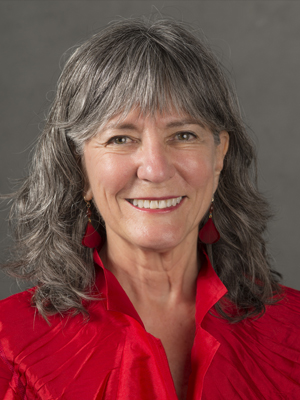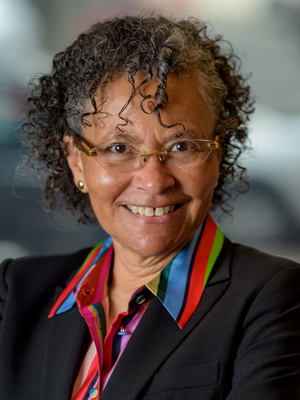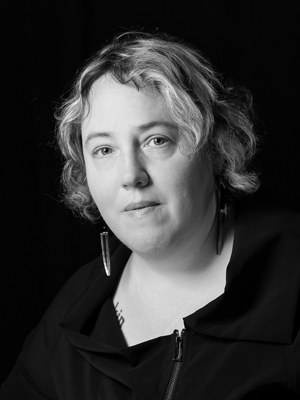Smith College Announces Commencement Speaker, Honorary Degree Recipients
News of Note

Published February 23, 2023
Activist Reshma Saujani, founder of Girls Who Code and Moms First—will deliver the address at Smith College’s commencement ceremony on Sunday, May 21.
Saujani will receive an honorary degree at the event.
Honorary degrees will also be awarded to:
- Lulu Garcia-Navarro, Peabody Award–winning journalist and New York Times Opinion podcast host
- Gabby Giffords, former United States Representative and gun control advocate
- Susan Goldin-Meadow, Ph.D., psychologist, previous president of the Association for Psychological Science and founding editor of the journal Language Learning and Development
- Camara Phyllis Jones, M.D., M.P.H., Ph.D., family physician, epidemiologist and anti-racism thought leader
- Kelly Link, prolific writer, editor, independent bookstore owner and publisher
About the Honorary Degree Recipients
Reshma Saujani
A leading activist for girls and women for more than a decade, Reshma Saujani builds movements to fight for women’s and girls’ economic empowerment. To help close the gender gap in the tech sector, Saujani founded Girls Who Code. Two years ago, in the midst of the pandemic, she founded Moms First, which advances policies that support mothers impacted by the pandemic. Saujani is the author of the instant bestseller, PAY UP: The Future of Women and Work (And Why It’s Different Than You Think) and the international bestseller Brave, Not Perfect. Her influential TED talk, “Teach girls bravery, not perfection,” has more than six million views. Saujani is a graduate of the University of Illinois, Harvard’s Kennedy School of Government and Yale Law School. An attorney and Democratic organizer, Saujani emerged onto the political scene in 2010 as the first Indian American woman to run for United States Congress.
Lulu Garcia-Navarro
 A two-time Peabody Award–winning journalist, Lulu Garcia-Navarro hosted National Public Radio’s Weekend Edition Sunday from 2017 to 2021. Serving as NPR’s Jerusalem bureau chief, Garcia-Navarro covered the Israeli-Palestinian conflict, the Arab Spring uprisings and the Libyan revolt, earning Edward R. Murrow and Peabody awards. After moving to Brazil, Garcia-Navarro developed a series on the Amazon rainforest that won an Edward R. Murrow Award for best news series. Prior to joining NPR, Garcia-Navarro worked for the Associated Press, covering Kosovo, Colombia and Afghanistan. She was among the few journalists to cover the 2003 invasion of Iraq as a unilateral reporter. Garcia-Navarro holds a bachelor’s degree in international relations from Georgetown University and a master’s degree in journalism from City University in London. She currently hosts the New York Times podcast First Person.
A two-time Peabody Award–winning journalist, Lulu Garcia-Navarro hosted National Public Radio’s Weekend Edition Sunday from 2017 to 2021. Serving as NPR’s Jerusalem bureau chief, Garcia-Navarro covered the Israeli-Palestinian conflict, the Arab Spring uprisings and the Libyan revolt, earning Edward R. Murrow and Peabody awards. After moving to Brazil, Garcia-Navarro developed a series on the Amazon rainforest that won an Edward R. Murrow Award for best news series. Prior to joining NPR, Garcia-Navarro worked for the Associated Press, covering Kosovo, Colombia and Afghanistan. She was among the few journalists to cover the 2003 invasion of Iraq as a unilateral reporter. Garcia-Navarro holds a bachelor’s degree in international relations from Georgetown University and a master’s degree in journalism from City University in London. She currently hosts the New York Times podcast First Person.
Gabby Giffords
 From her scrappy Arizona childhood, to her bridge-building politics, to her remarkable recovery from traumatic injuries, Gabby Giffords personifies courage. As the youngest woman ever elected to the Arizona State Senate and a trailblazer in other offices, she represented her community in the Arizona legislature from 2000 to 2005, and then in Congress from 2006 to 2012. On January 8, 2011, at a “Congress On Your Corner” constituent event in Tucson, Giffords was shot in the head by a gunman who killed six people and injured 12 others. Stepping down from Congress in January 2012 to focus on her recovery, Giffords embarked on a path to regain her ability to speak and walk, inspiring the country. Today she leads Giffords, the gun violence prevention organization she co-founded after the tragic mass shooting at Sandy Hook Elementary. In 2022, Giffords was awarded the Presidential Medal of Freedom, the nation’s highest civilian honor. Gabby Giffords Won’t Back Down, a documentary from the filmmakers behind RBG, premiered the same year. From raising awareness about aphasia, to practicing yoga and learning Spanish, Gifford’s spirit of resiliency, perseverance and courage resonates around the world as she has become the nation’s most renowned leader in the movement to end gun violence.
From her scrappy Arizona childhood, to her bridge-building politics, to her remarkable recovery from traumatic injuries, Gabby Giffords personifies courage. As the youngest woman ever elected to the Arizona State Senate and a trailblazer in other offices, she represented her community in the Arizona legislature from 2000 to 2005, and then in Congress from 2006 to 2012. On January 8, 2011, at a “Congress On Your Corner” constituent event in Tucson, Giffords was shot in the head by a gunman who killed six people and injured 12 others. Stepping down from Congress in January 2012 to focus on her recovery, Giffords embarked on a path to regain her ability to speak and walk, inspiring the country. Today she leads Giffords, the gun violence prevention organization she co-founded after the tragic mass shooting at Sandy Hook Elementary. In 2022, Giffords was awarded the Presidential Medal of Freedom, the nation’s highest civilian honor. Gabby Giffords Won’t Back Down, a documentary from the filmmakers behind RBG, premiered the same year. From raising awareness about aphasia, to practicing yoga and learning Spanish, Gifford’s spirit of resiliency, perseverance and courage resonates around the world as she has become the nation’s most renowned leader in the movement to end gun violence.
Susan Goldin-Meadow ’71, Ph.D.
 A renowned psychologist recognized for her work on the emergence of language, Susan Goldin-Meadow ’71 first became fascinated by the relationship between language and thought while an undergraduate at Smith College. Her interest in language development extended to her doctoral work at the University of Pennsylvania. Goldin-Meadow is known for her studies of homesign—gestural systems created by deaf children unable to learn spoken language and not exposed to sign language. Despite their lack of usable linguistic input, the children’s gesture systems contain many properties of human language. Her research has been funded by organizations such as the National Science Foundation, the March of Dimes, and the National Institute of Neurological and Communicative Disorders and Stroke. She has served as a member of the language review panel for the National Institutes of Health and was part of the Committee on Integrating the Science of Early Childhood Development. The recipient of both a Guggenheim Fellowship and a James McKeen Cattell Fellowship, Goldin-Meadow is an elected fellow of the American Academy of Arts and Sciences and of the National Academy of Sciences.
A renowned psychologist recognized for her work on the emergence of language, Susan Goldin-Meadow ’71 first became fascinated by the relationship between language and thought while an undergraduate at Smith College. Her interest in language development extended to her doctoral work at the University of Pennsylvania. Goldin-Meadow is known for her studies of homesign—gestural systems created by deaf children unable to learn spoken language and not exposed to sign language. Despite their lack of usable linguistic input, the children’s gesture systems contain many properties of human language. Her research has been funded by organizations such as the National Science Foundation, the March of Dimes, and the National Institute of Neurological and Communicative Disorders and Stroke. She has served as a member of the language review panel for the National Institutes of Health and was part of the Committee on Integrating the Science of Early Childhood Development. The recipient of both a Guggenheim Fellowship and a James McKeen Cattell Fellowship, Goldin-Meadow is an elected fellow of the American Academy of Arts and Sciences and of the National Academy of Sciences.
Camara Phyllis Jones, M.D., M.P.H., Ph.D.
 A family physician and epidemiologist, Camara Phyllis Jones has devoted her career to naming, measuring and addressing the impacts of racism on the health and well-being of our nation and the world. Her allegories on “race” and racism illuminate topics that are otherwise difficult for many Americans to understand or discuss: that racism exists, racism is a system, racism saps the strength of the whole society, and we can act to dismantle racism. Jones is currently a Leverhulme Visiting Professor in Global Health and Social Medicine at King’s College London. She is a past president of the American Public Health Association, a member of the newly launched O’Neill-Lancet Commission on Racism, Structural Discrimination, and Global Health, and an elected member of the American Academy of Arts and Sciences and the National Academy of Medicine. She earned her bachelor’s degree in molecular biology from Wellesley College, her medical degree from the Stanford University School of Medicine, and both her master of public health and her doctoral degree in epidemiology from the Johns Hopkins School of Hygiene and Public Health.
A family physician and epidemiologist, Camara Phyllis Jones has devoted her career to naming, measuring and addressing the impacts of racism on the health and well-being of our nation and the world. Her allegories on “race” and racism illuminate topics that are otherwise difficult for many Americans to understand or discuss: that racism exists, racism is a system, racism saps the strength of the whole society, and we can act to dismantle racism. Jones is currently a Leverhulme Visiting Professor in Global Health and Social Medicine at King’s College London. She is a past president of the American Public Health Association, a member of the newly launched O’Neill-Lancet Commission on Racism, Structural Discrimination, and Global Health, and an elected member of the American Academy of Arts and Sciences and the National Academy of Medicine. She earned her bachelor’s degree in molecular biology from Wellesley College, her medical degree from the Stanford University School of Medicine, and both her master of public health and her doctoral degree in epidemiology from the Johns Hopkins School of Hygiene and Public Health.
Kelly Link
 An award-winning author and advocate for independent writers, Kelly Link is best known for her short stories that span a variety of genres—most notably, magic realism, fantasy and horror. Her collections include Stranger Things Happen, Magic for Beginners, Pretty Monsters, Get in Trouble, and most recently, White Cat, Black Dog. Link is a 2018 MacArthur Fellow, a Pulitzer Prize finalist and a recipient of a grant from the National Endowment for the Arts. A graduate of Columbia University in New York and the master of fine arts program at the University of North Carolina Greensboro, Link owns independent bookstore Book Moon in Easthampton, Massachusetts. She is also the co-founder of independent publishing company Small Beer Press and co-edits the occasional zine Lady Churchill’s Rosebud Wristlet.
An award-winning author and advocate for independent writers, Kelly Link is best known for her short stories that span a variety of genres—most notably, magic realism, fantasy and horror. Her collections include Stranger Things Happen, Magic for Beginners, Pretty Monsters, Get in Trouble, and most recently, White Cat, Black Dog. Link is a 2018 MacArthur Fellow, a Pulitzer Prize finalist and a recipient of a grant from the National Endowment for the Arts. A graduate of Columbia University in New York and the master of fine arts program at the University of North Carolina Greensboro, Link owns independent bookstore Book Moon in Easthampton, Massachusetts. She is also the co-founder of independent publishing company Small Beer Press and co-edits the occasional zine Lady Churchill’s Rosebud Wristlet.
About Smith College:
Founded in 1871, Smith College opened in 1875 with 14 students. Today, it is one of the largest women’s liberal arts colleges in the United States, educating women of promise for lives of distinction and purpose. Smith enrolls more than 2,900 students from nearly every state and more than 75 other countries to cultivate leaders able to address the complex, urgent problems of today. As a global community of scholars, entrepreneurs, artists, scientists, activists and humanitarians, Smith is pushing the world forward. More information at smith.edu.